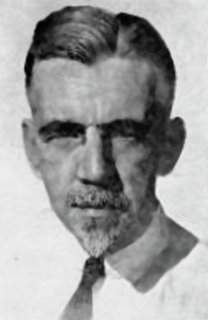Silver Shirts

The period between the fall of the Russian czar and the U.S. entry into World War II certainly produced its share of strange rangers operating in the wide open plains of the American political landscape. Surely one of the more colorful and bigoted of such creatures was William Dudley Pelley -- American fascist, evangelist and screenwriter, and the founder of the "Silver Shirts," sub-dubbed by Pelley himself as the "Protestant militia of America." Pelley, who was born on this day in 1890 in Lynn, Massachusetts, established the "Silver Shirts" on the day after Hitler took power in Germany in 1933.
The son of a Methodist minister, Pelley was a foreign correspondent in Russia during the Bolshevik revolution. By the time he returned to the U.S., his reports were filled with anti-Semitic ramblings; but he temporarily left his politics behind, moving to Hollywood from 1921 to 1929, becoming a reasonably successful novelist and screenwriter -- his stories and scenarios that reached the screen included What Women Love (1920, with Annette Kellerman), The Light in the Dark (filmed by Clarence Brown, 1922), The Fog (1923), Her Fatal Millions (with Viola Dana, 1923), The Shock (with his good friend Lon Chaney, 1923, from his story "Pit of the Golden Dragon"), and Drag (filmed by Frank Lloyd, 1929).
On May 28, 1928, however, he had a spiritual epiphany, which he wrote about in My Seven Minutes in Eternity (1929), detailing coincidences and visions he had that convinced him that angels of God had willed him to do something to stop the spread of ruthless Jewish domination that he believed he had seen in Russia. With Hitler as his example, Pelley founded the "Silver Shirts," publishing a tabloid called Liberation in which he regularly cast American politics in apocalyptic terms (Franklin Roosevelt's presence in the White House was a sign that the "conflict between Light and Dark forces on the earth" was drawing nearer, for example), and amassing a small but loyal band of supporters who donned Nazified uniforms and marched through small towns in America.
In 1936, rather than support the anti-interventionist Union Party ticket led by William Lemke and supported by Father Coughlin, Pelley ran for president as the candidate of his self-formed Christian Party on a platform of prohibiting Jewish property ownership and suffrage. The lukewarm effort eventually landed Pelley in a distant 8th place in the November election, with roughly 1,598 votes.
By 1940 Pelley was under investigation for espionage by the U.S. Justice Department. After he began publishing a pro-Nazi, anti-interventionist magazine, Roll Call, just before the U.S. entry into World War II, Pelley was indicted under the Sedition Act, and despite character testimony from Charles Lindbergh, Pelley was convicted and sentenced to 15 years in a maximum security prison. He was released on parole in 1952, and settled in Nobelsville, Indiana, where he continued to blame Roosevelt as the cause of America's growing social upheaval and saw fascism as America's only chance for redemption. He died there on July 1, 1965.
Labels: Presidential Campaigns, Silent Film





0 Comments:
Post a Comment
Subscribe to Post Comments [Atom]
<< Home